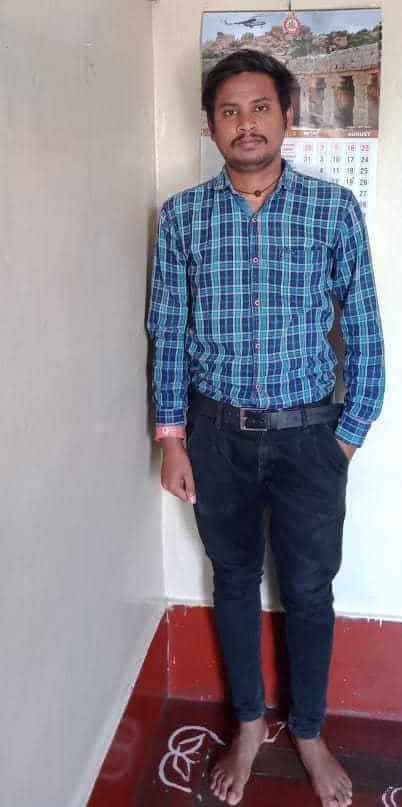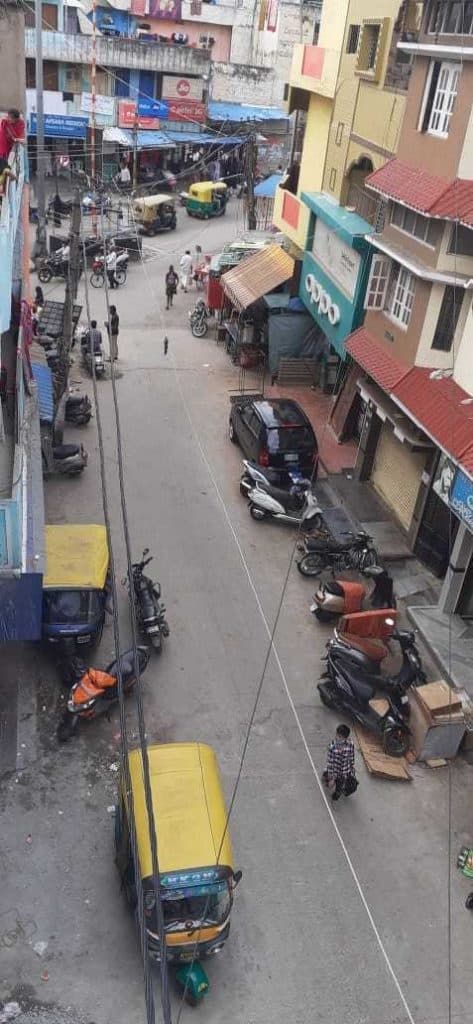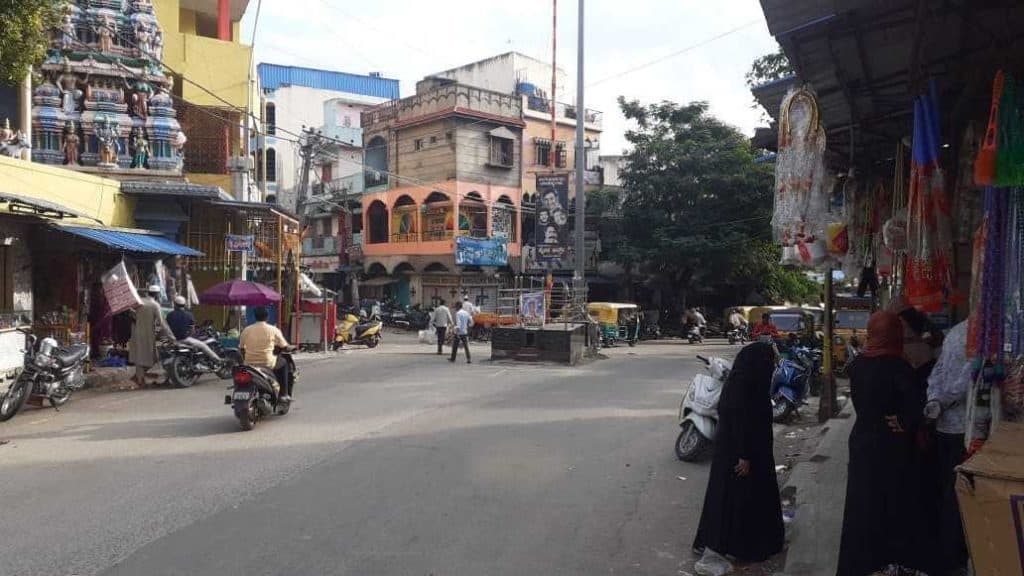Rahul K was waiting for a friend to pick him up from home that morning. He was heading for a job interview but did not seem to have the proverbial butterflies in his stomach. “I will attend, for whatever it is worth,” he said. The cynicism in his tone was unmissable….and way too much for a 21-year-old, I thought.
Dressing up in formals and attending job interviews had become his daily routine ever since BBMP relaxed the nearly three-month-long lockdown, he said, speaking over a mobile phone that he shares with his mother. He has applied for dozens of jobs since. “When they say they will call back, I know what it means,” he said, wryly. He tried at several call centres, and even walked into Coffee Day, Burger King and Decathlon asking for a job, he said. No success.
The job scene is grim, I said. But he was referring to something else. His address was undoing his job prospects, he said. “When they see ‘Gorepalya’ on my resume, they dismiss my application.”
I didn’t get it.
Then, he explained: “A while ago, the job consultant I was speaking to told me that they are not giving placements to anybody from ‘sealed-down’ areas. I felt offended and told him that now there are (COVID) positive cases from all areas. He said he will call back and hung up”. From mid-April until recently, BBMP had completely sealed off Padarayanapura ward, isolating it from neighbouring areas and severely restricting residents’ movements.
Rahul’s cynicism fell into perspective.
The first-year degree student used to support his family – his mother, brother and himself – by working for a courier agency after college hours. That was before the lockdown. After lockdown, his employer said there was no job left to offer him. He even refused to pay Rs 6,000 for 20 days of work in March, and blamed it on the parent company.
Rahul’s mother used to work as a domestic help until the lockdown in March. Those households did not want her to come back because she lives next to Padaranyapura. Luckily for the family, Rahul’s brother found a job before the lockdown, that required him to relocate to Kamakshipalya, several kilometres away.

“I think I should also get out of Gorepalya, Padarayanapura and this city itself, go to some village and find work there,” Rahul said, before hanging up.
I had set out to explore what post-lockdown life was like in an area that had been totally sealed down till recently – whether, as the cliché goes, it was “limping back to normal”. I had conjured up images of people rebuilding their lives. It turned out that for the working poor, the lockdown never ended. Worse, it now seems to be a state of mind.
On the wrong side of the tracks
Padarayanapura, and its surrounding areas Gorepalya, Jagajivanram Nagar, Hale Guddadahalli, etc., fall in separate wards, but are all in the same boat. They are parts of Bengaluru that better-off people see only from inside train windows (the Bengaluru-Mysuru railway line runs right through Padarayanapura).
Bound by Mysuru Road to its south, Tank Bund Road to its east, Binnypet to its north and Vijayanagar to its west, this maze of predominantly Muslim ghettos comprising little dwellings, businesses, garbage dumps, overflowing sewage and squalor, is a civic nightmare.
Padarayanapura hit headlines in mid-April, when it was declared the first COVID-19 hotspot in the city. It was in the news again when BBMP’s health workers along with the police went to trace contacts of patients – Muslims mainly — and take them away to quarantine facilities.
When officials started rounding up secondary contacts, people in the area panicked, leading to a confrontation. Some unruly youth in the locality broke down police barricades and beat up health workers. A larger force was deployed and several people arrested for the disturbance.
That incident sealed Padarayanapura’s fate (as well).

Local economy in a shambles
Riyaz, who sells clothes on pavements in various parts of the city, does not reveal that he lives in Padarayanapura. He recalls how his niece, who was due to deliver a baby, was refused admission in various hospitals and had to be rushed to a maternity hospital in distant Shivajinagar, just minutes before the delivery.
People are vacating their homes and heading to their towns and villages as they are not earning and are unable to pay rent, Riyaz said. Skilled craftsmen have taken to selling vegetables to make a living.
The entire economy of Padarayanapura and surrounding areas — mostly small, private businesses — is in a shambles. These areas, for instance, are well-known for their wood-workers who make doors and windows for homes. Many are shut now. So are the numerous car and bike repair shops, iron works, ready-made cloth shops, meat and poultry shops, etc.
Problems in procuring goods coupled with thin profit margins had rendered Riyaz’s business unviable. “So, after the lockdown was lifted, I started going to City Market as a daily wage labourer, but then even the market was closed down,” he said. BBMP had locked down City Market around the last week of June, after several COVID cases were reported.
Insulting the injured
Irfan Pasha, a scrap vendor, said that his wife and three children survived the lockdown, thanks to food relief from NGOs. But he is more worried about survival now than during the lockdown. Irfan usually collects automobile scrap from vehicle service centres along Kanakapura Road, far outside Padarayanapura.
Although all COVID clusters were unlocked several weeks ago in the rest of Bengaluru, the metal sheets that were used to seal roads leading to Padarayanapura and surrounding areas came down only on July 7, Irfan said.
Why so?
“There is nobody who questions anything here, sir. We people are not educated. And the educated ones don’t have the courage to raise their voice,” he said.
He is particularly bitter about the media, which he said was malicious and Islamophobic. “Media uchal uchal ke deti hai. Padarayanapura ka naam badnaam kardiye (The media ran a relentless campaign; and ruined Padarayanapura’s reputation)”.
Even when someone jokes that he is from Padarayanapura, Irfan said, he gets angry. “We feel bad. ‘What if it (COVID) comes to your area tomorrow? Will you kill yourself?’, I ask them,” he said.
Tabrez Khan, a resident and relief volunteer with Swaraj Abhiyan, one of the NGOs that supplied food to Padarayana’s poor during the seal-down, said scores of mechanics, electricians, carpenters, steel workers, recycling workers, butchers, cloth sellers, autorickshaw drivers and manual labourers were hiding their domicile and seeking work. “But these days, you can’t even go to a hospital without showing your identity card,” he pointed out.
The COVID-19 situation in the area “is not so bad”, Tabrez said, but the impression given was that “it is all coming from Padarayanapura”.
Dangerous implications
Janaki, a Kannada lecturer who lives in Padarayanapura Main Road, said that the Muslim community had dealt with COVID-positive patients in a humane manner. “But unfortunately, the entire community (Muslims) has been branded as carrying the virus,” she said.
Even well-off and educated people like Janaki have felt insulted. “People don’t say it directly to our faces, but it is there,” she said, “We are also affected, mentally”.
Janaki, who lives in her husband’s home in Vijayanagar, has come to her natal home in Padarayanapura due to her pregnancy. At the hospital where she gets her monthly check-up, she only reveals her husband’s home address.
Autorickshaw drivers who used to ferry her from her college in Rajarajeshwari Nagar would refuse to enter Padarayanapura, she said. “They would leave me outside. I would walk home.” Presently, her college management has allowed her to work from home.

“Every morning, auto drivers in our locality come home and ask if I need a ride to college. They tell me ‘Pay whatever you want’. That’s how bleak it is,” Janaki said.
The stigma attached to Padarayanapura could have more sinister consequences, she warns, wondering if the sudden fall in number of COVID-19 cases there could be due to people hiding the disease. “Considering the stigma and how the government and media projected this area as a hotspot, people may be afraid of coming out and saying that they have been infected. I do not know, but that could be a possibility. That is terrible, right?” she asked.
Meanwhile, Rahul had returned from the job interview. I called, only to find out that the consulting agency demanded Rs 2,000 to place him with Amazon, Flipkart or Big Basket. “I asked them why they didn’t tell me of this fee on the phone itself. It would have saved me a journey,” he said.
Swaraj Abhiyan volunteers led by Mr.Kizer E Alam has been working in Padarayanapura spearheading relief activities during lock down period.Sadly because of the bad publicity for Padarayanapura,even our volunteer lost his job opportunities and is without a source of income.Media needs to be more responsible while reporting as otherwise it will affect livelihoods of a section of people.
Absolutely true, being a local of p Pura I agree with this report